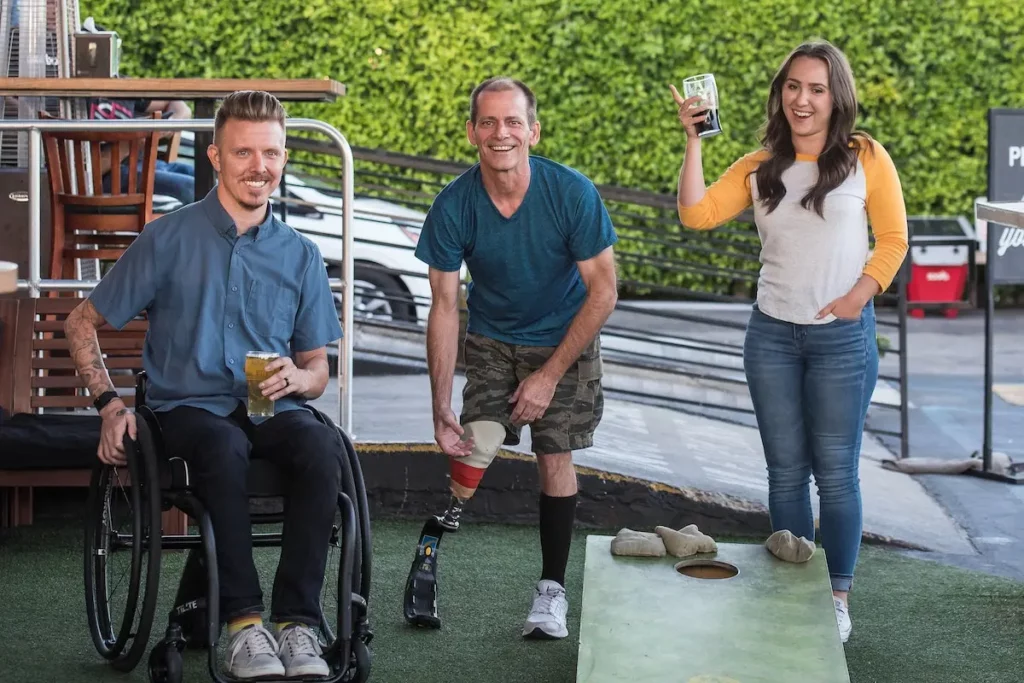Demystifying Supported Independent Living: Your Top FAQs Answered
The National Disability Insurance Scheme (NDIS) recently shared the story of Anna, a 26-year-old with Down syndrome who harbours a profound desire for independence. Supported Independent Living (SIL) is the key to realising this aspiration for Anna.
With a tailored SIL housing plan that accommodates her needs, Anna now resides in a home with two fellow participants and a support worker. In this environment, she can decorate her living space and do most chores independently, much like other young women her age.
Want to know more about how SIL in Queensland can empower you or your loved one?
This blog provides a list of frequently asked questions to help you better understand what SIL entails.
What is SIL?
Supported Independent Living (SIL) is a disability support service designed to assist individuals with disabilities in living as independently as possible in their homes or shared housing. SIL providers offer personalised support, enabling participants to develop essential life skills and enhance their quality of life.
Who is Eligible for SIL?
In Queensland, eligibility for SIL housing is determined through assessments conducted by the National Disability Insurance Scheme (NDIS). These assessments evaluate the support requirements of individuals with disabilities. If the evaluation reveals a need for daily support to live independently, one may qualify for SIL.
How Much Does It Cost?
In many cases, SIL costs are covered through the NDIS, making it accessible to eligible individuals. The NDIS allocates funding based on an individual’s assessed needs and goals. Participants can choose to manage their funding, have a plan manager, or opt for agency-managed support.

What Does SIL Cover?
Supported Independent Living is a flexible service tailored to meet each participant’s needs and goals. It typically covers a range of support activities, such as personal care, assistance with household tasks, social and community participation, health and wellbeing, skill development, emotional and psychological support, and transportation.
Are There Other Options if I’m Not Eligible for SIL?
If you are not eligible for Supported Independent Living, there are alternative disability support services available to help you live more independently. Some options include community access and participation programs, respite care, Specialist Disability Accommodation (SDA), home modifications, and support coordination.
What is the Difference Between SIL and SDA?
Supported Independent Living (SIL) and Specialist Disability Accommodation (SDA) are two distinct services that cater to individuals with disabilities, but they serve different purposes:
SIL focuses on support: SIL primarily offers support services to help individuals with disabilities live independently in their chosen accommodation. It focuses on enhancing daily living skills and social participation.
SDA is about accommodation: SDA, conversely, is centred around accessible housing. It provides individuals with disabilities access to specially designed homes that meet their unique accommodation needs.
Enjoy the Perks of Supported Independent Living With FlexiHome Care
Supported Independent Living is a valuable service that empowers individuals with disabilities to lead more independent lives by offering tailored support. The services offered by SIL providers can cover various aspects of daily living, from personal care to skill development.
Are you interested in reaping the benefits of Supported Independent Living?
FlexiHome Care is an SIL and SDA housing support service provider registered with the NDIS. We offer quality accommodations for NDIS participants in Queensland tailored to their specific needs and goals.
Contact us today so we can assist you with your specialised accommodation needs.
